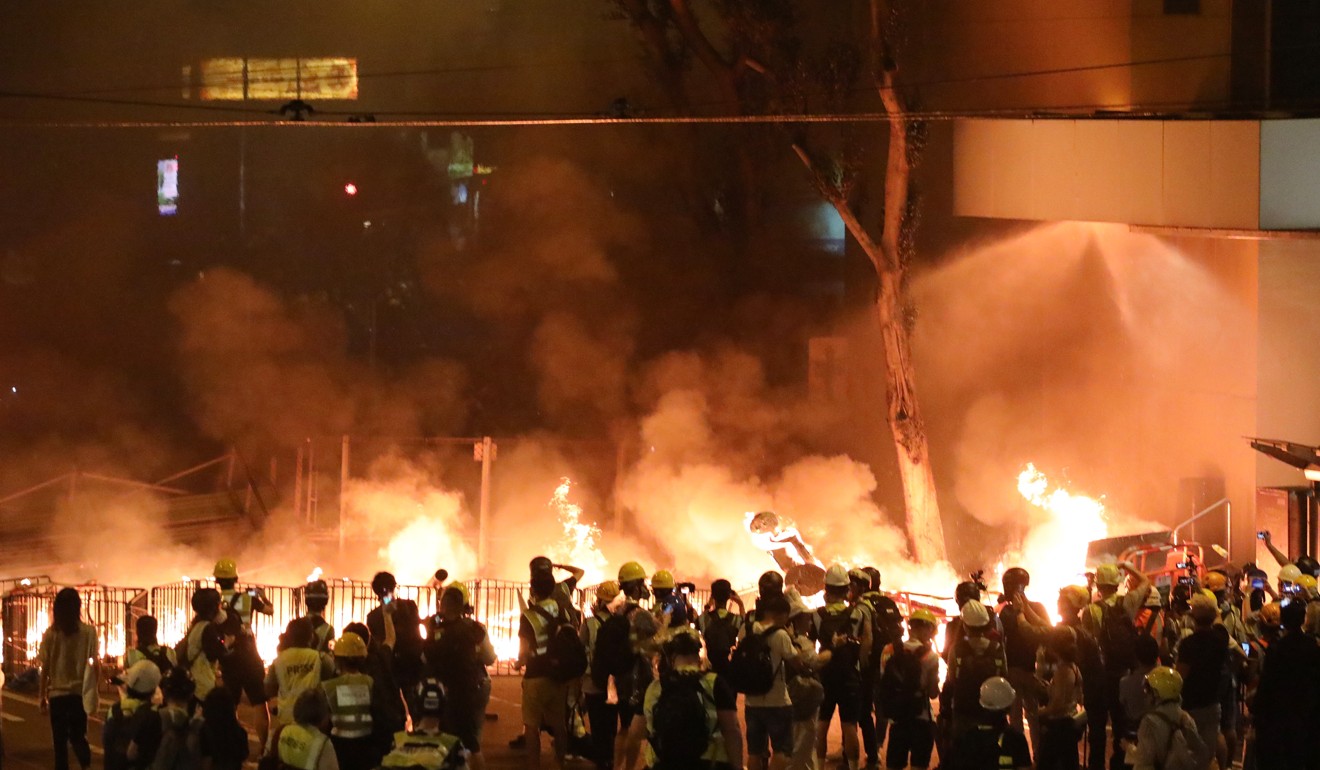
PLA troops or not, what really matters is Hong Kong’s post-protests relationship with mainland China
- Even Beijing claims that if army is called in to quell unrest it does not necessarily mean end of ‘one country, two systems’
- Beijing has woken up to deep social and economic divisions in Hong Kong society
As Hong Kong’s massive anti-government protests enter their 14th consecutive week, violent clashes between radicals and police have kept escalating, as witnessed over the weekend.
Beijing has also come up with new rhetoric: if ever People’s Liberation Army troops from the Hong Kong garrison, or armed police from across the border, have to be called in to quell the unrest, it does not necessarily mean the end of “one country, two systems”.
But how so?
Without doubt, it will be a disaster and a nightmare for both Beijing and Hong Kong if this well-received, unique governing formula ever has to come to an abrupt end.
Hypothetical or not, the crux of the issue is, can broken pieces of a mirror be put together for everyone to pretend that it is as beautiful as ever?

Can it be the same for the second-half implementation of this formula until 2047, the deadline set by paramount leader Deng Xiaoping for his 50-year promise endorsed by the Basic Law?
Surely no one can pretend nothing has happened.
Hongkongers are highly divided on the eventual price the city will have to pay for the current crisis. What is indisputable is that mainland and overseas visitors are worried about visiting Hong Kong, with the drop in tourist numbers in July serving as yet another indicator.
Is this city safe? What would have been an absurd question before the events of this angry summer is a legitimate concern now, but whether military intervention is needed soon is another matter altogether.
If Beijing’s trusted loyalists in town carry any weight in shedding some light on the situation, the latest comments from former chief executive Leung Chun-ying and Basic Law expert Maria Tam Wai-chu could be telling when it comes to the complexities of Hong Kong’s future under one country, two systems.
Last Friday, the official People’s Daily published a lengthy article by Tam in which she recalled how Deng, as early as in the 1980s, predicted the possibility of mobilising the PLA “if there is a huge disturbance” in post-handover Hong Kong.
But in an interview with Reuters, she highlighted the point that Hong Kong was far from even the need for a local emergency law, let alone seeking military assistance.
Tam might have been be looking at two sides of the same coin, while that particular Friday also saw Leung posting a message on Facebook to declare that the protests had actually provided Beijing with a timely opportunity to do a “complete housecleaning” by identifying all those otherwise hidden problems.
“A lot has to be done, and it must get to the bottom of [the problems] in the coming years,” Leung said.
Whether anyone agrees or not with Leung and Tam, the two weighed in at this critical juncture to share something similar: from Beijing’s perspective, this political mayhem has woken it up to face the volcanic eruption of the many deeply entrenched and unresolved political, economic and social problems plaguing this city.
In particular, it has been given a bitter but real taste of the growing anti-Beijing sentiment among Hong Kong’s youth.
Sending in troops will not resolve all these thorny issues; it will only deepen hatred.
If Chief Executive Carrie Lam Cheng Yuet-ngor and her administration are not even in the mood to invoke local emergency laws because of many legal and political considerations, talk of bringing in the PLA is still not warranted.
All this indeed signals the beginning of a much bigger challenge for both Beijing and this defiant city: learning to adjust and meet each other’s expectations, peacefully, so as to ensure Hong Kong has a genuinely high degree of autonomy under one country, two systems.

